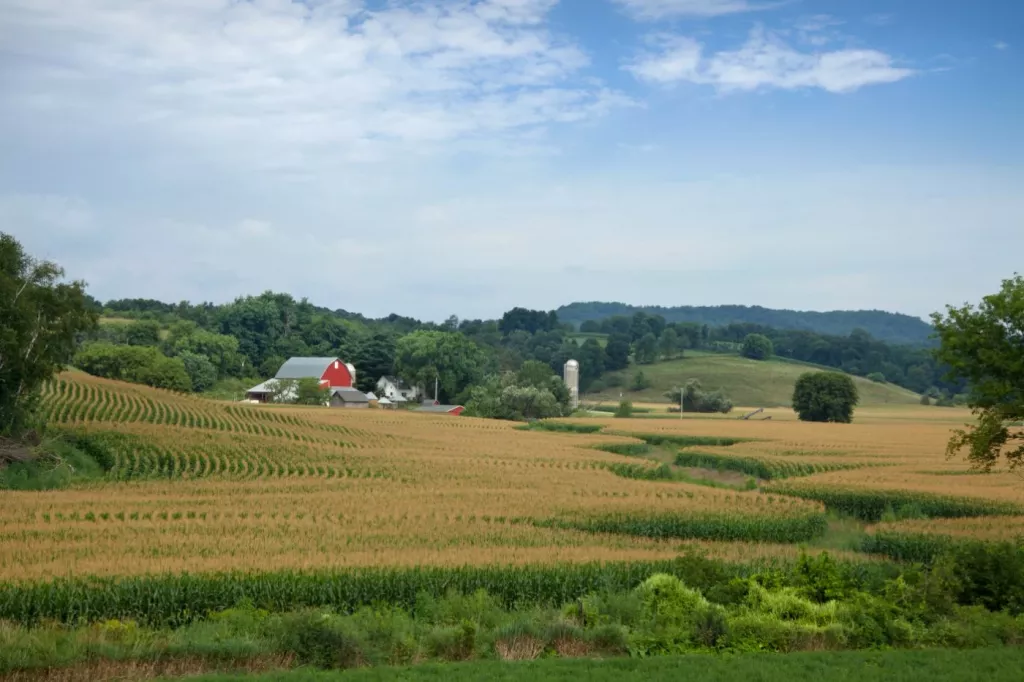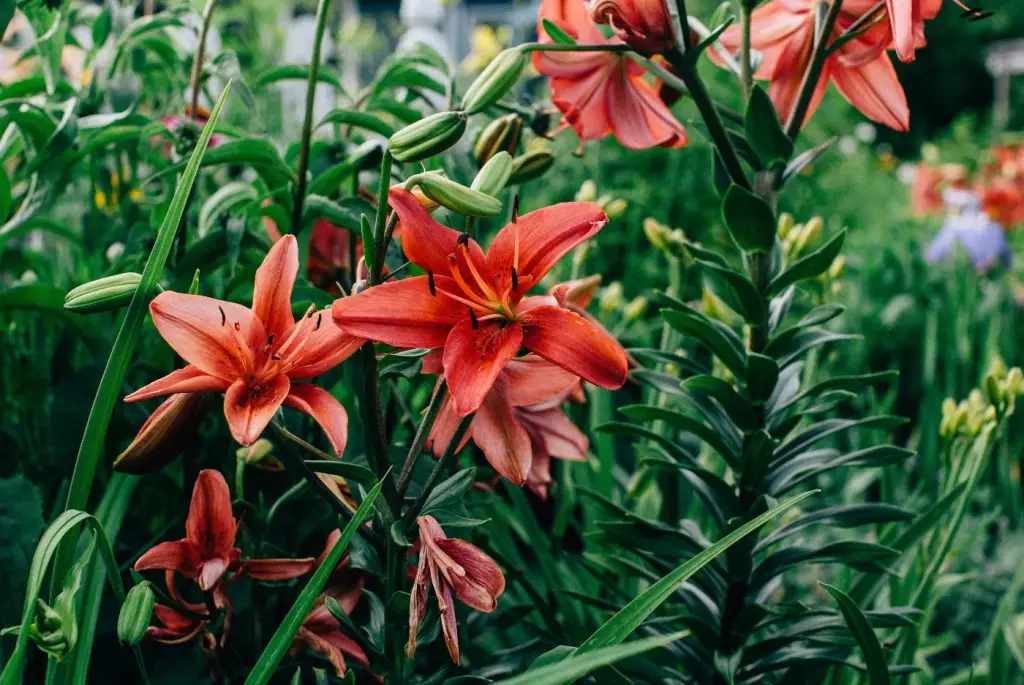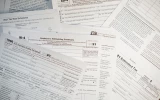Do I Need a Permit to Keep Bees in Wisconsin?
In some cases, you'll need a permit to keep bees in Wisconsin, while in most, you won't. Whether you're just starting out, or already established, you'll find all the requirements here.
According to Wisconsin state law, you don't need a permit to keep bees if you have less than ten colonies. However, if you have ten or more colonies, you must obtain a permit from the Wisconsin Department of Agriculture, Trade, and Consumer Protection (DATCP).
To get a license, visit the DATCP website and fill out an application. Provide the required information, such as the type of bees you are keeping and their location. The agency will then review your application before issuing you a permit.
Summary
- You need a permit if you have 10 colonies or more.
- You can request your permit online.
- You need to renew the permit annually.

On this page:
- Why Does Wisconsin Require a Permit to Keep Bees?
- Step By Step Guide on Filing a Permit to Keep Bees in Wisconsin
- How to Register Your Hive in Wisconsin
- Consequences of Keeping Bees Without a Permit in Wisconsin
- What is The Wisconsin Pollinator Protection Plan?
- Tips for New Beekeepers on Complying with Wisconsin’s Permit
- Things to Consider When Keeping Bees in Wisconsin
- Summary
Why Does Wisconsin Require a Permit to Keep Bees?
Bees can be a source of both enjoyment and income for their keepers, but they can also pose risks to those who are allergic to their stings or may be concerned about the potential for swarms.
By requiring a permit, the state can ensure that beekeepers take the necessary precautions to keep their bees – and those around them – safe.
Wisconsin, like many other states, has seen declines in its native bee populations due to a variety of factors, including the spread of diseases like American foulbrood. By requiring a permit, the state can track the movement of bees and take steps to prevent the spread of diseases.
The permit requirement also helps support the local economy and the beekeeping industry.
So, while getting a permit to keep bees in Wisconsin may seem like a hassle, it may contribute to ensuring your hive's success and sustainability.

Step By Step Guide on Filing a Permit to Keep Bees in Wisconsin
To file for a permit to keep bees in Wisconsin, follow the following steps:
- Contact your local county or city zoning office to find out if there are local ordinances or regulations regarding beekeeping in your area.
- Obtain a copy of the Wisconsin Department of Agriculture, Trade, and Consumer Protection's (DATCP) "Beekeeping in Wisconsin" booklet. This booklet includes the requirements for obtaining a permit and maintaining bees in the state.
- Complete the "Application for Permit to Keep Bees" form, which can be found in the DATCP booklet or on the DATCP website.
- Submit the completed application form and any required fees to the DATCP.
- Once your application has been approved, you will receive a permit to keep bees in Wisconsin.
It's important to note that in addition to obtaining a permit, beekeepers in Wisconsin must register their hives with the DATCP. This move helps the state track bees' movement and prevent the spread of diseases and pests.
If you have any questions or need further assistance with the permit process, contact the DATCP at (608) 224-5012 or datcphotline@wisconsin.gov.
How Long Does the Beekeeper’s Permit Last?
In Wisconsin, beekeeping permits are valid for one year and must be renewed annually. The renewal process typically involves completing a short application and paying a fee. It is vital to keep your permit up-to-date and renew it before it expires to comply with the state's regulations for beekeeping.
How to Register Your Hive in Wisconsin
It's vital to register your hive in Wisconsin because it helps the state track its bee populations' health. This information is used to develop policies and programs that support the state's beekeeping industry and protect against diseases and pests that can harm bees.
Here’s how you can register your bee hive to Wisconsin’s DATCP:
- Contact the DATCP by phone or email to request a beekeeper registration form. (See their contact info above)
- Complete the beekeeper registration form. You will need to provide information about yourself, the location of your hive, and the number of hives you have.
- Return the completed form to the DATCP. You can do this by mail or by email.
- Pay the registration fee. The fee for registering your hive in Wisconsin is $10 per hive. You can pay the fee by check or money order, made payable to "Wisconsin Department of Agriculture, Trade, and Consumer Protection."
- Keep your registration up to date. You will need to renew your registration annually and update the DATCP if you make any changes to your hive, such as adding or removing hives.

Consequences of Keeping Bees Without a Permit in Wisconsin
If you are caught keeping bees without a permit, you could face fines and other legal consequences. Obtaining a permit before keeping bees in Wisconsin is essential to ensure you comply with the law.
The specific penalties for keeping bees without a permit in Wisconsin will depend on the case's circumstances and the judge's discretion. You could be ordered to pay a fine and have your bees confiscated.
What is The Wisconsin Pollinator Protection Plan?
The Wisconsin Pollinator Protection Plan is a document developed by the Wisconsin DATCP that outlines strategies for protecting and promoting the health of pollinators in the state. Pollinators are essential because they help fertilize plants for agriculture, including many vital crops.
The plan includes several strategies and actions intended to support pollinators, including:
- Promoting the use of flowering plants that provide nectar and pollen for pollinators
- Encouraging best management practices for pollinators in agriculture and other land uses
- Providing education and outreach about the importance of pollinators and how to protect them
- Research to understand the factors that affect pollinator health and develop new strategies for protecting them
- Working with partners to implement the plan and achieve its goals.
Tips for New Beekeepers on Complying with Wisconsin’s Permit
If you are a new beekeeper in Wisconsin, here are a few tips to help you comply with the state's permit requirements:
- Make sure you obtain a permit: It is illegal to keep bees in Wisconsin without a permit, so make sure you complete the necessary application and pay the required fee before you start keeping bees.
- Familiarize yourself with the state's regulations: Wisconsin has specific regulations in place for beekeeping, and you must understand and follow these rules.
- Keep your bees healthy: One of the requirements for keeping bees in Wisconsin is that you must maintain the health of your hive. This includes monitoring for diseases and pests and taking steps to prevent or address any issues.
- Keep your neighbors in mind: It is vital to be considerate of your neighbors when keeping bees in Wisconsin. Make sure your hive is located in a spot that is not a nuisance to others, and be willing to work with your neighbors if they have any concerns about your bees.
- Join a local beekeeping group: Many areas of Wisconsin have local beekeeping groups that can support and guide new beekeepers. Consider joining one of these groups to get advice and help from experienced beekeepers.
Things to Consider When Keeping Bees in Wisconsin
Aside from getting a permit, you should also consider other factors before setting up a beekeeping facility in Wisconsin, such as:
Location of the hives
You should choose a location for your hive(s) that is protected from the wind and has access to plenty of sunlight. It's also important to consider the proximity of the hive to your neighbors and any potential nuisance issues.
Health and safety precautions
Keeping bees can be a rewarding hobby, but taking proper precautions to protect yourself and others is a top priority. This includes wearing protective clothing, such as a bee suit or veil, and using appropriate protective equipment when handling the hive.
Nuisance issues
You should be aware of the potential for bees to cause a nuisance to your neighbors. This includes issues such as bees flying over property lines or swarming. It's essential to take steps to minimize any potential nuisance issues.
Resources for more information
Several resources are available to help you learn more about keeping bees in Wisconsin, including the Wisconsin Department of Agriculture, Trade and Consumer Protection, the Wisconsin Beekeepers Association, and local beekeeping clubs and organizations.
Summary
To keep bees in Wisconsin, you must first file a permit from the state’s DATCP. This requirement is in place to ensure the safety of the public and the responsible management of bees in the state.
